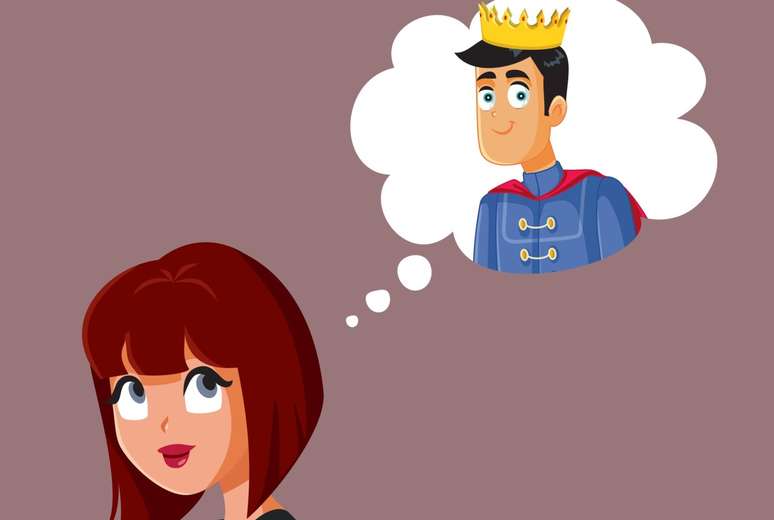It is a firm belief that does not change even when there is evidence to the contrary
Have you ever heard of erotomania? This term is used to describe a type of delusion when a person becomes convinced that another is in love with them, despite evidence to the contrary. This type of fantasy often involves a celebrity or someone very well known.
In general, those who develop this obsession have difficulty facing the facts. However, according to experts, it is possible to treat or control this condition.
Definition of erotomania
In 1921, the French psychiatrist Gaëtan Gatian de Clérambault described a syndrome he called passionate psychosis. Later, the symptoms were called Clérambault syndrome, or erotomania.
This is a type of delusion, defined in psychology as a firm belief that does not change even when presented with evidence that contradicts it. While not a condition in and of itself, the Diagnostic and Statistical Manual of Mental Disorders, 5th Edition (DSM-5) considers erotomania to be a symptom of delusional disorder.
Delusions in delusional disorder can have many themes. In the case of erotomania, the delusion typically presents as a fixation on someone along with the belief that they are in love with you. This someone can be anyone, but most often it is a public figure, a famous person, or someone considered to be of higher social status.
This person could be someone you know, but they could also be a stranger or someone with whom you have had limited contact or who has communicated that they do not reciprocate your romantic feelings. Other mental health conditions that may have erotomanic delusions as a symptom include:
-bipolar disorder
-borderline personality disorder
-brain diseases (cognitive impairment)
-schizophrenia and schizoaffective disorder
-major depressive disorder (MDD)
Some people who engage in stalking behavior are diagnosed with erotomania. However, not all who do so live with erotomania, and not all who suffer from erotomania engage in stalking.
Erotomaniac delusions can manifest themselves in different ways, for example:
-A person believes that a local news anchor is saying certain things on TV to get his or her attention.
-Someone hears secret messages addressed to him in the lyrics of his favorite musicians.
-A person spends their free time finding out everything they can about a famous actor, singer, or political figure they believe loves them.
Primary erotomania
It is a subtype of delusional disorder. In short it is:
-no other mental health diagnoses
-rapid onset of symptoms
-symptoms that last a long time
-difficulty responding to treatment
Secondary erotomania
It is considered a symptom of other mental health conditions in addition to delusional disorder. In short, it involves:
-comorbidities (other conditions) present
-slow and gradual onset of symptoms
-symptoms that occur in episodes
-effective management with psychotherapy and medications
Signs of erotomania
Not everyone experiences erotomania in the same way or with the same intensity. Its signs can be emotional or behavioral or both.
Emotional signals
-the other person is missing
-feelings of loneliness and emptiness
-feelings of guilt and shame
-denial of someone’s expressions of rejection or disinterest
-feeling like you can’t take “no” for an answer
“You may also feel jealous and suspicious that the other person is being unfaithful to you. Additionally, there is a loss of interest in most activities,” Brian Wind, a clinical psychologist in Brentwood, Tennessee, tells Psych Central . “
Behavioral signs
-getting angry at people who don’t believe in you
-spending time with the illusion, even when it has a negative impact on your professional, home or school life
-try to decode secret messages directed at you through media, captions, wardrobe choices, postures, texts, or telepathically (delusions of reference)
-call, write or text someone repeatedly
-Sneak up on someone online or in person
-harm anyone who gets in the way of reaching the person
-aggressive behavior towards the person (more commonly in men)
What erotomania is not
Sometimes a passion is just a passion, especially among the younger ones. You can write a fan letter to your favorite celebrity or kiss goodnight on the poster hanging on the wall. If you met him in person and he didn’t return your feelings, you may feel hurt, but you can move on. In this case, research suggests that it is not erotomania unless:
-you believe he is in love with you despite the rejection
-make finding information about that person a priority in your life
-do everything to connect with him
Is erotomania linked to schizophrenia?
Erotomania can occur on its own (primary) or as a symptom of other mental disorders (secondary). Sometimes this includes schizophrenia, but not in all cases. Erotomania is not always a symptom of schizophrenia because those with this diagnosis may have different types of delusions or none at all.
Is erotomania a psychotic episode?
Psychosis, or a break with reality, is usually a symptom of a mental health problem that can last anywhere from a few hours to a few weeks. It can include false beliefs or delusions, including that someone is in love with you. “Erotomania that occurs only in brief episodes can be similar to a psychotic episode […] but it’s not always the same,” says Wind. If you live with primary erotomania that has a chronic pattern of thinking and behavior, this is different from a temporary state of psychosis.
Can erotomania be cured?
If you are open-minded, erotomania can be managed with professional support, which often includes a combination of different approaches.
Psychotherapy: Psychotherapy can be an integral part of your treatment plan to control erotomania. Older research suggests that cognitive behavioral therapy (CBT), in particular, can be effective. This method can help you develop deeper insight into your patterns, strengthen your coping skills, and identify signs that guide your behavior.
Medicines: Research shows that medications may be helpful in reducing the symptoms of delirium in some people. Only a mental health professional can determine whether this is the best type of treatment for you. If you do, some options you may consider include antipsychotics, antidepressants, and anti-anxiety medications.
Hospitalization programs: In some cases, people with erotomania feel the need to harm themselves or others. In this case, an inpatient program may be a good option. “Those who live with delusions may not recognize them and become a danger to themselves or others. It is then that it is necessary to hospitalize the person so that they can receive the necessary care”, concludes Makin.
Source: Psych Central
Source: Terra
Ben Stock is a lifestyle journalist and author at Gossipify. He writes about topics such as health, wellness, travel, food and home decor. He provides practical advice and inspiration to improve well-being, keeps readers up to date with latest lifestyle news and trends, known for his engaging writing style, in-depth analysis and unique perspectives.








